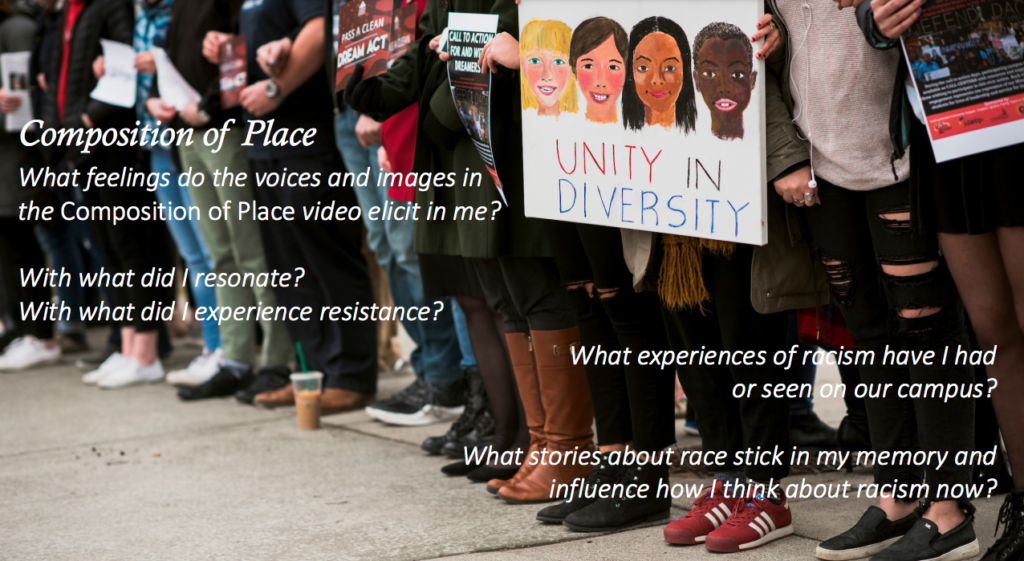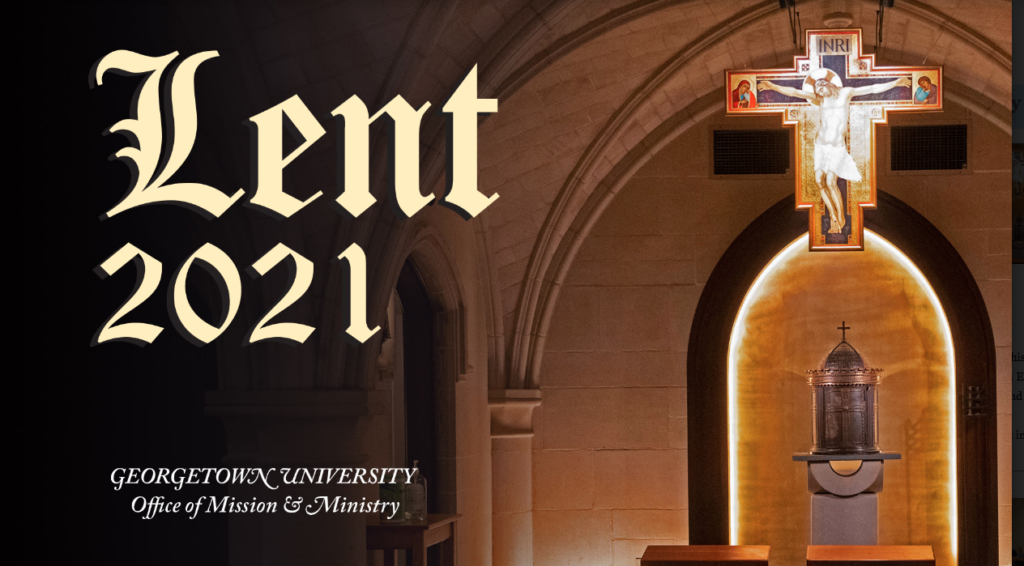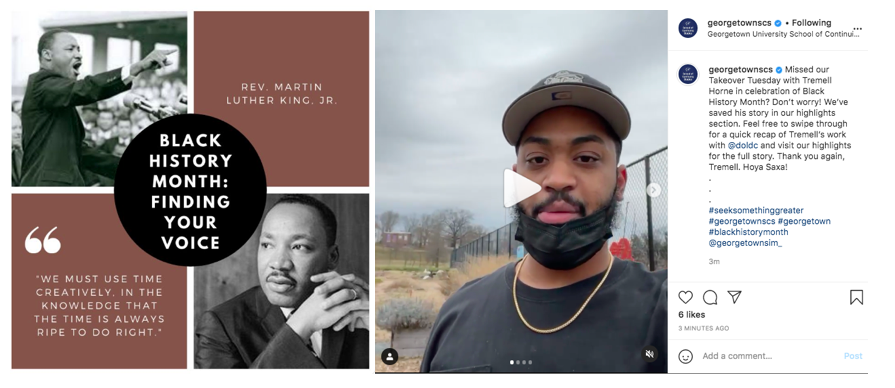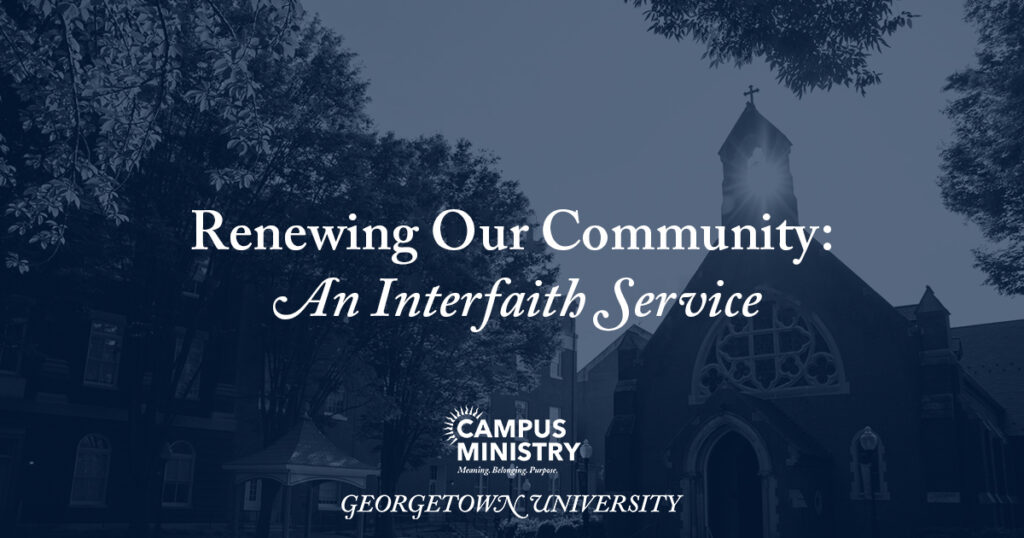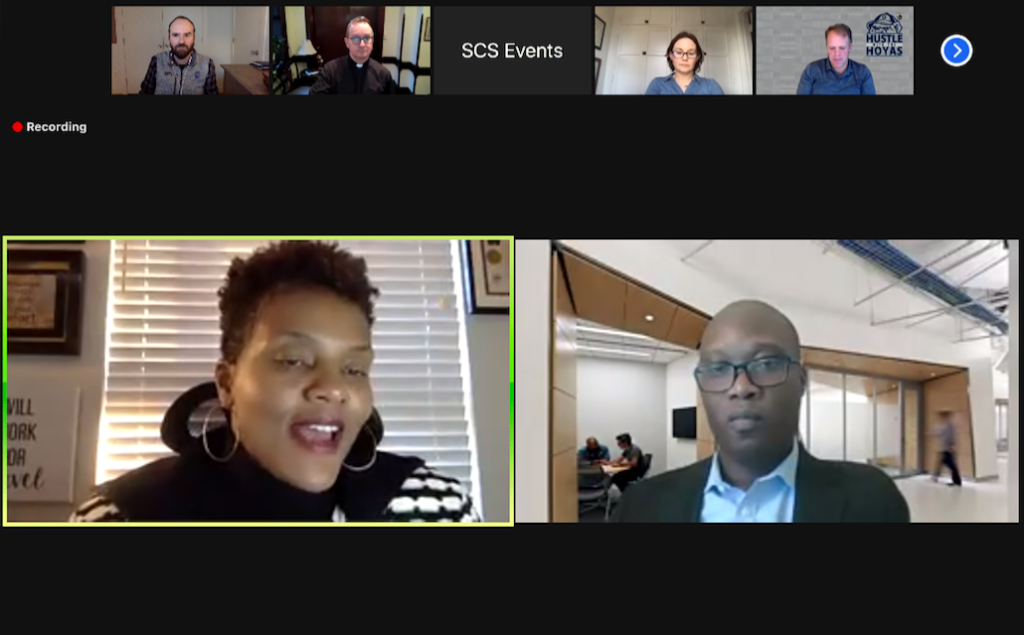The most recent edition of “Connections,” the online magazine of the Association of Jesuit Colleges and Universities (AJCU), focuses on the ways Jesuit schools, in the spirit of cura personalis, are serving the physical and mental health needs of students, faculty, and staff throughout the pandemic. Mission in Motion has written about several of the ways that Georgetown has met the physical, mental, and spiritual needs of our community during a time of unprecedented personal and collective stress, for example, SCS’s Daily Digital Meditation, Monday through Friday at 12 p.m. EST, has offered a space for reflection and contemplation (consider signing up here). As a reminder, students seeking mental wellness resources should connect with the Counseling and Psychiatric Service (CAPS) and staff and faculty should reach out to the Faculty & Staff Assistance Program (FSAP).

The article “Finding Peace of Mind at Loyola Chicago” especially caught my attention. This piece addresses the significant emotional and physical benefits of mindfulness meditation, something that Mission in Motion addressed this past summer. I resonated with the article’s concluding point made by Fr. Scott Hendrickson, S.J., a chaplain and Associate Provost for Global and Community Engagement at Loyola University Chicago. Fr. Hendrickson makes an important connection between the damage that unaddressed stress can do not only on our minds and bodies but on our spirits. He says: “These negative reactions [to stressful circumstances in our lives] often cause us to complain about, and to, other people, which is destructive in maintaining meaningful relationships – including our relationship with God.”
In an effort to meet the spiritual needs arising from our community as a result of pandemic-related stress, Georgetown’s Campus Ministry is offering a regular series called “Press Pause: Co-Creating Sacred Time.” The series begins on March 2 and ends on April 28 with each weekly session taking place at 5 p.m. ET over Zoom (you can log in each week here). Press Pause, building on Georgetown’s inter-religious commitment and multi-faith model of chaplaincy, will feature contemplative practices from diverse faiths, traditions, and cultures. The sessions are led by experienced practitioners and are open to all, offering accessible introductions to the practices while honoring their traditions of origin. You can see the entire schedule below.

I invite you to take advantage of this unique Georgetown opportunity to experience the sacred by taking a pause in the midst of your daily life.


